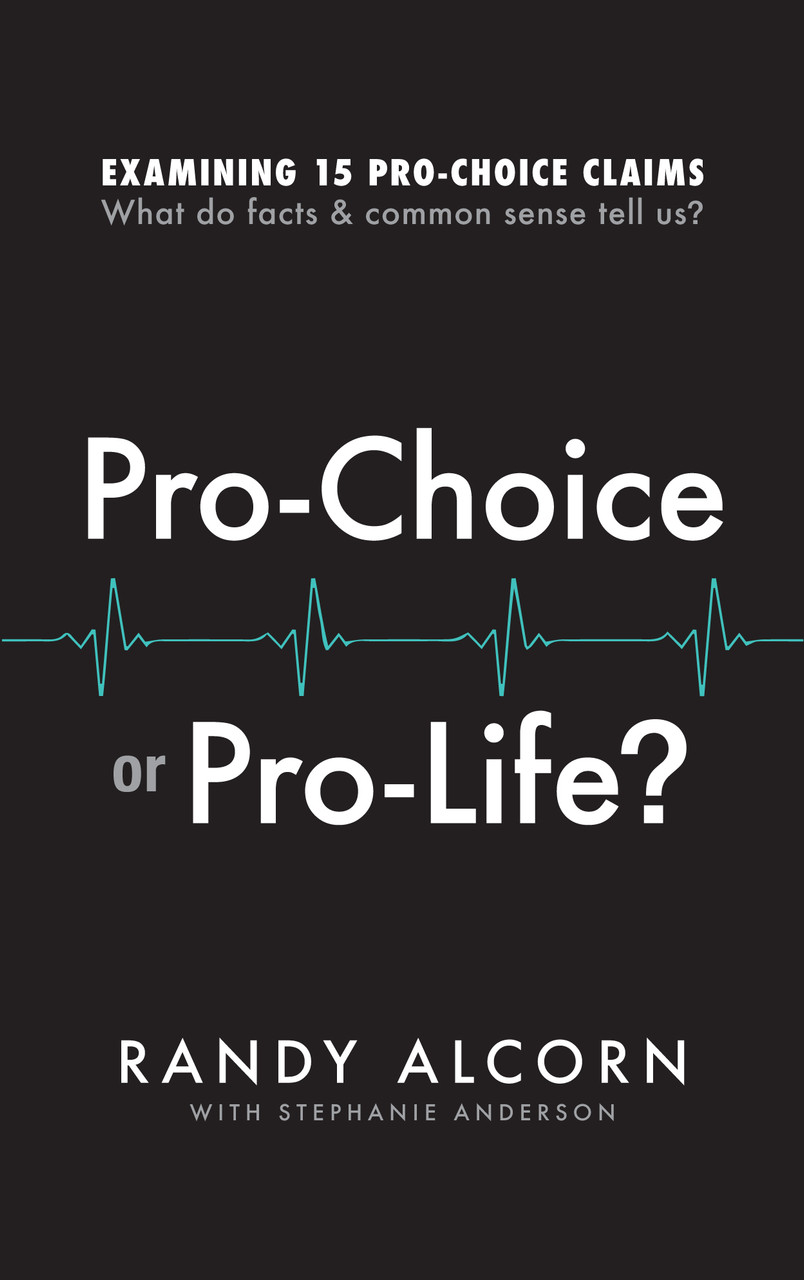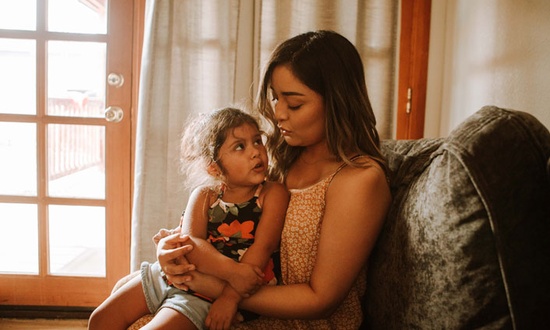Despite their emphasis on choice, the pro-choice movement leaves many women feeling that they have no choice but abortion. Abortion is constantly portrayed as the preferred choice. After all, a woman facing an unplanned pregnancy wonders, what’s the alternative? Raise a child she seemingly can’t afford, and who will disrupt her life choices like going to school and pursuing a career? Or experience the heartbreak of giving up a child for adoption?
But “abortion or misery” is a binary trap that keeps women from pursuing—and society from providing—positive alternatives. It’s a terrible thing to present pregnant women with inadequate choices, leaving them in an apparent no-win situation. We must reject this trap of presenting the choice between abortion and misery, as if there were no misery in abortion, and as if there were no alternatives.
Why does Planned Parenthood, with its over one billion dollars from tax revenues and foundations, not devote itself to a third alternative, such as adoption? Since it makes millions of dollars from abortions every year, giving it huge vested interests in abortion, how can Planned Parenthood be expected to offer real and objective choices to pregnant women in need?
Do they share the stories of women who kept their children, and are grateful they did? How about the stories of women who chose adoption, and though it was difficult, have been left with a sense of peace, knowing they have given someone the gift of life? Or how about the wonderful stories of women who have been reunited with their birth children years later?
Does Motherhood Mean Poverty and No Opportunities?
Many women attest that being a mother doesn’t ruin their lives, as is sometimes claimed, but expands and enriches them in beautiful ways, even when it’s challenging emotionally, physically, and financially. Unfortunately, that possibility is likely the farthest thing from the mind of a woman who finds herself pregnant and wishes she weren’t.
Maria Baer, a volunteer counselor at her local pregnancy resource center, writes:
Women facing an unplanned pregnancy often have reasonable, here-and-now fears. They may fear the loss of financial stability—or the loss of the ability to ever reach it. They may fear the loss of an already teetering status quo in which every available ounce of food is already consumed at home—perhaps by other children they’re already parenting. Pregnant women may lose a job, or they may not get the job they were hoping for. They may fear a violent boyfriend or father.
They may even fear pregnancy itself, which is often full of terrifying sickness, physical pain, loss of emotional control, and embarrassing bodily problems. …That means one of our first steps in ministering to a woman facing a crisis pregnancy is to acknowledge her fear. Don’t judge it, don’t shrug it off, but take her seriously. It is scary. Don’t offhandedly offer adoption as a quick solution. Don’t immediately start in on the logical fallacies of pro-abortion apologetics. Let her be afraid, and tell her she’s not alone. (Better yet: Mean it.)
Once we acknowledge her fear—and, if she’ll allow it, pray for her—we can start to talk through potential solutions to her various worries.
These fears are all understandable. But because the life of another human being is involved, financial distress does not justify abortion. It does mean that women who choose to keep and raise their children instead of choosing adoption need support and help. There are pro-life organizations in the U.S., including pregnancy resource centers (which outnumber abortion clinics), Young Lives (a branch of Young Life), Students for Life, and Feminists for Life, that offer support for pregnant and parenting students. LifeNews reports, “College pro-life groups also have been working to make campuses more friendly, welcoming environments for student-parents by advocating for diaper changing tables in restrooms, offering free babysitting, and encouraging the school to adopt policies to accommodate pregnant/parenting students.”
Feminists for Life addresses the situation of a pregnant woman who is poor and lacks support:
A woman who is pregnant needs to know that there are perfect strangers who will care for her even if the people she counts on the most have let her down. She needs information about child support laws that prohibit coercion by the father either by physical force or by threats to withhold child support.
…We do not eliminate poverty by eliminating poor women’s children. It is degrading to poor women to expect or imply that their children aren’t welcome. We believe that poor women deserve the same support and life-affirming alternatives as wealthy women.
…Abortion is not an enriching experience. An abortion won’t get a woman a better job or get her out of a bad (for example, abusive) situation.
Completing school and working are desirable things in many cases, and perhaps even necessary financially. Pregnancy can make them difficult. But a woman normally can continue school and work during pregnancy. If she places her child for adoption, she need not give up school or work. If she chooses to raise the child herself, there are childcare options available if she must work outside the home. Help is available in many forms.
I am not suggesting this is ideal, nor do I say it callously. I have worked with and helped single mothers and know their difficulties. I am simply pointing out there are alternatives, any one of which is preferable to an innocent child’s death and the undesirable consequences to her mother. Regardless of the challenges, one person’s right to a preferred lifestyle is not greater than another person’s right to a life.
Furthermore, when the only choice presented is abortion, a woman is frequently kept in a negative cycle which can result in multiple abortions. Having and raising a child or choosing adoption can be an enriching and growing experience in taking responsibility, thereby possibly resulting in better choices in the future.
Is Adoption: a “Regrettable Punishment”?
I am amazed at the negative light in which adoption is often portrayed in abortion rights literature. Pro-choice advocates Carole Anderson and Lee Campbell say of adoption, “The unnecessary separation of mothers and children is a cruel, but regrettably usual, punishment that can last a lifetime.”
Adoption is hardly a punishment to a woman carrying a child. It is a heaven-sent alternative to raising a child she is unprepared to raise, or to killing that same child. Adoption is a fine alternative that saves a life and makes another family happy; it’s tragic that adoption is so infrequently chosen as an alternative to abortion. (There are two million families waiting to adopt, and newborns are especially desired by adoptive families.)
Maria Baer writes,
Women may fear…adoption. Though morally clear, the thought is often experientially vague: It seems, or feels, much less repugnant to have a hidden medical procedure in the first weeks of pregnancy than to consciously hand over a smiling, babbling baby to a woman whose body never knew him or her. It’s cognitive dissonance, sure, but it’s a real—and understandable—fear.
One way of addressing a woman’s fear is to demonstrate the beauty and courage of allowing another family to adopt. Because a woman has not yet bonded with her child, the abortion might seem like an easy solution, while parting with her child after birth might be emotionally difficult. But the child’s life is just as real before bonding as after.
I’ve talked with several women considering abortions who had identical reactions to the suggestion of adoption: “What kind of mother would I be to give up a child for adoption?” The better question, which we need to gently help her ask, is, “What kind of mother would I be to kill my baby by abortion?”
The reason the former question is asked more often than the latter is our capacity to deny reality. Pregnant women who think “I don’t want to be a mother” tell themselves, under the influence of pro-choice rhetoric, that they still have a choice about becoming a mother. There are certainly choices open to them, including whether or not to raise their child themselves or place their child for adoption. Both choices require sacrificial love, for sure. But the fact is, they have no choice about whether or not they are mothers. That ship sailed the moment they became pregnant—the moment the baby was conceived.
Many years ago we took a pregnant teenage girl into our home. Though she’d had two abortions, she chose to carry this baby and, with our help and support, placed him for adoption. It was not easy, but this wonderful woman (one husband and three more children later) told me: “I look back at the three babies I no longer have, but with very different feelings. The two I aborted fill me with grief and regret. But when I think of the one I gave up for adoption, I’m filled with joy, because I know he’s being raised by a wonderful family that wanted him.” Several years ago she was able to meet her grown biological son, in a gathering arranged by his adopted mother. My wife, Nanci, and I were invited to attend this reunion. It was one of the most unforgettable and truly wonderful experiences of our lives. We witnessed the beautiful result of a painful but courageous decision made 33 years earlier. Everyone present at this reunion, without exception, had great reason to celebrate!
A woman facing an unplanned pregnancy has no easy options. She has three choices—have her child and raise him, have her child and allow another family to raise him, or kill her child through abortion. Two of these options are reasonable and constructive. One is not. I believe it’s a moral imperative that we clearly tell pregnant women, “You can choose life and goodness and a future for your child without raising him or her yourself.”
Tragically, too often “pro-choice” ends up meaning “no choice but abortion.” Let’s do all we can to show women the real choices besides abortion—which are far superior, with outcomes involving life, not death.
This article is excerpted from Randy’s book Pro-Choice or Pro-Life: Examining 15 Pro-Choice Claims—What Do Facts & Common Sense Tell Us?
In this thoroughly researched and easy-to-read book, author Randy Alcorn examines fifteen major claims of the pro-choice position and shares fact-based, rational responses. If you have mixed feelings about abortion, as many people do, this book can be part of your quest for truth. If you’re pro-choice or pro-life, it can help you think through your position.
You can download the PDF for free, and print copies can be purchased from our ministry for a low cost. Quantity discounts area available for churches that would like to make the book available to their members. One person could provide a copy to be distributed free to everyone in his church!





